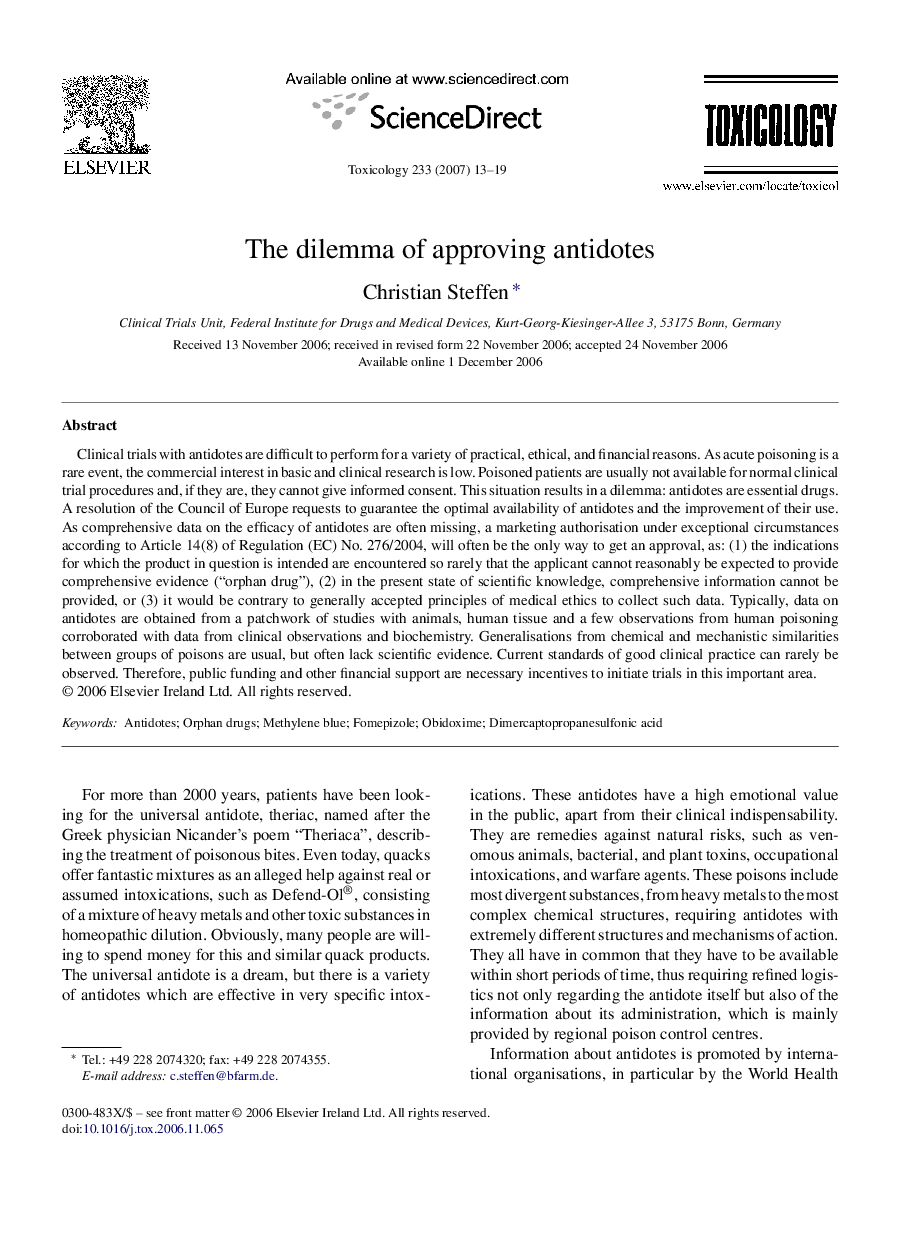| Article ID | Journal | Published Year | Pages | File Type |
|---|---|---|---|---|
| 2597859 | Toxicology | 2007 | 7 Pages |
Clinical trials with antidotes are difficult to perform for a variety of practical, ethical, and financial reasons. As acute poisoning is a rare event, the commercial interest in basic and clinical research is low. Poisoned patients are usually not available for normal clinical trial procedures and, if they are, they cannot give informed consent. This situation results in a dilemma: antidotes are essential drugs. A resolution of the Council of Europe requests to guarantee the optimal availability of antidotes and the improvement of their use. As comprehensive data on the efficacy of antidotes are often missing, a marketing authorisation under exceptional circumstances according to Article 14(8) of Regulation (EC) No. 276/2004, will often be the only way to get an approval, as: (1) the indications for which the product in question is intended are encountered so rarely that the applicant cannot reasonably be expected to provide comprehensive evidence (“orphan drug”), (2) in the present state of scientific knowledge, comprehensive information cannot be provided, or (3) it would be contrary to generally accepted principles of medical ethics to collect such data. Typically, data on antidotes are obtained from a patchwork of studies with animals, human tissue and a few observations from human poisoning corroborated with data from clinical observations and biochemistry. Generalisations from chemical and mechanistic similarities between groups of poisons are usual, but often lack scientific evidence. Current standards of good clinical practice can rarely be observed. Therefore, public funding and other financial support are necessary incentives to initiate trials in this important area.
